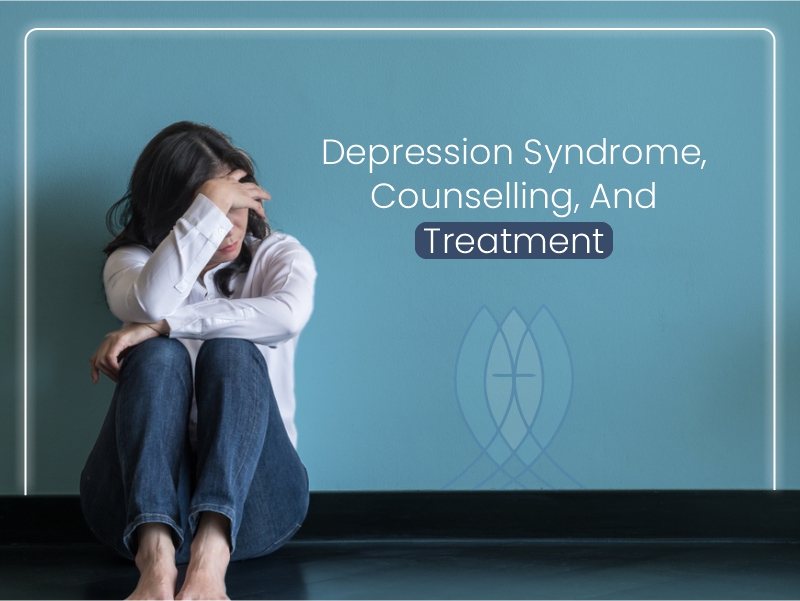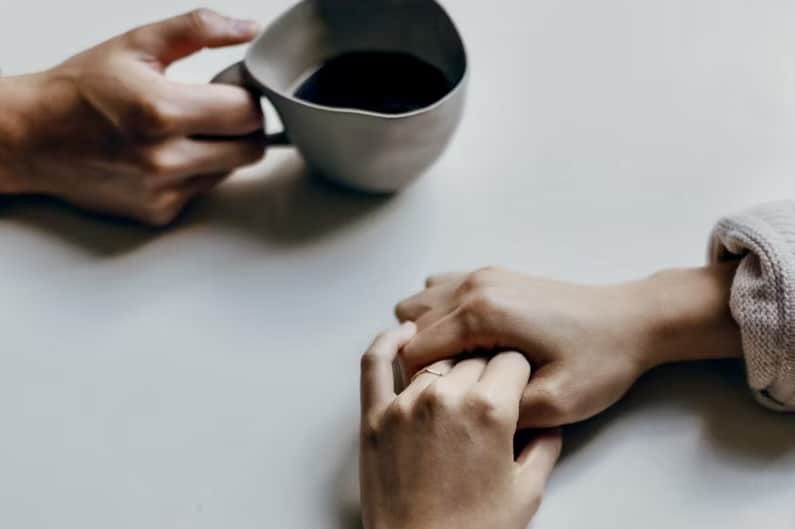Exploring Different Approaches in Counselling for Stress And Anxiety Condition for Enduring Adjustment
When taking on anxiousness problems, it's necessary to check out a selection of therapy strategies. Each method uses unique insights and devices to assist you handle your symptoms efficiently. You may locate that integrating methods can generate the very best results. Nonetheless, comprehending the subtleties of these strategies is essential to fostering long lasting change. What if the right mix could release a brand-new level of emotional health for you?
Recognizing Anxiousness Problems: A Short Summary
Anxiety problems, which impact millions of individuals worldwide, can considerably affect every day life. You could experience overwhelming sensations of concern or worry that appear unmanageable. These feelings can bring about physical signs like an auto racing heart, sweating, or perhaps dizziness. Usual sorts of anxiety problems include generalised stress and anxiety disorder, panic attack, and social stress and anxiety disorder. Each has unique indicators, yet they all share a propensity to interrupt your regular and relationships.Understanding the origin triggers of your stress and anxiety is vital. It may stem from genes, brain chemistry, or life experiences. Acknowledging your triggers can assist you handle your reactions better. It is essential to keep in mind that you're not the only one in this struggle. Lots of people encounter comparable difficulties, and looking for help is a strong step toward feeling much better. By learning regarding anxiety problems, you're already on the course to understanding and handling your problem a lot more efficiently.
Cognitive-Behavioral Treatment: Testing Negative Idea Patterns
In Cognitive-Behavioral Treatment, you'll start by determining the adverse idea triggers that contribute to your stress and anxiety. As soon as you recognize these thoughts, you'll deal with changing them with even more positive alternatives. With each other, you'll construct reliable coping strategies to help manage your anxiety in everyday situations.
Identifying Negative Thought Triggers

When you encounter moments of distress, acknowledging the certain triggers behind your unfavorable ideas can be vital in handling stress and anxiety. Begin by paying attention to situations that prompt sensations of concern or worry. Is it a congested room, an approaching deadline, or a discussion with certain individuals? Write down these instances in a journal. This will aid you determine patterns in your reasoning. Notice physical experiences that accompany your adverse ideas, like an auto racing heart or tightness in your upper body. By identifying these triggers, you get understanding into what's sustaining your stress and anxiety. Understanding these connections is the primary step in challenging those thoughts and inevitably reclaiming control over your emotional actions.
Replacing Ideas With Positives
Testing unfavorable idea patterns is a necessary step in transforming your way of thinking and minimizing anxiousness. You may commonly discover on your own trapped in cycles of insecurity or tragic thinking. Instead of letting these thoughts dictate your sensations, practice replacing them with positive affirmations or sensible choices. When you think, "I can't handle this," shift it to, "I can handle difficulties one action at a time." This straightforward change can significantly affect your mood. Routinely determining and countering these negative thoughts helps create a healthier interior dialogue. Remember, it takes some time and effort, but constantly practicing this method can result in lasting modification, equipping you to face anxiety with restored self-confidence and durability.
Building Coping Techniques Together
Replacing adverse ideas is just the beginning of managing anxiety effectively. To develop long-term modification, you need to build coping strategies that encourage you. Cognitive-Behavioral Treatment (CBT) assists you determine and challenge those purposeless idea patterns. Together, you and your therapist can discover exactly how these thoughts impact your sensations and behaviors.Start by creating functional methods, like journaling or mindfulness exercises, that allow you to confront anxiousness head-on. When you encounter your concerns gradually, you'll learn to react in different ways.

Mindfulness and Acceptance-Based Approaches: Cultivating Present-Moment Recognition
As you navigate the intricacies of anxiety, including mindfulness and acceptance-based methods can substantially enhance your capacity to cultivate present-moment recognition. By concentrating on the below and currently, you'll find that you can observe your ideas and sensations without judgment (Counseling services for anxiety). This practice assists you recognize your anxiety without really feeling bewildered by it.Engaging in mindfulness exercises, such as deep breathing, body scans, or assisted reflections, allows you to ground yourself in your existing experience. Acceptance-based approaches encourage you to accept your feelings instead of combat versus them. When you accept your sensations, they lose their power over you.Incorporating these methods right into your day-to-day regimen can transform exactly how you reply to anxiousness. You'll create resilience and learn to navigate stressful circumstances with higher convenience. Inevitably, growing present-moment awareness lays the foundation for long lasting modification, equipping you to lead a much more satisfying life
Exposure Treatment: Facing Worries Slowly
Exposure therapy helps you face your worries in a progressive method, making it much less frustrating. You'll find out strategies to deal with anxiety-provoking Your Domain Name circumstances detailed, while likewise developing coping methods to handle your responses. This strategy empowers you to take control and lower anxiousness with time.
Progressive Exposure Techniques

When dealing with stress and anxiety, progressively facing your anxieties can be an effective way to reclaim control. This method, referred to as steady direct exposure, entails slowly revealing yourself to the scenarios or objects that cause your anxiety. Begin with less challenging circumstances and slowly function your way as much as even more challenging ones. For circumstances, if you're afraid of public talking, you could begin by speaking before a mirror, then advance to sharing ideas with a buddy, and at some point address a little team. Each action helps desensitize you to the concern, building your confidence gradually. Bear in mind, it's vital to rate yourself and celebrate little triumphes as you relocate through this process, strengthening your capacity to manage stress and anxiety properly.
Structure Coping Methods
Structure efficient coping techniques is crucial for managing anxiety, especially as you challenge your anxieties progressively - Counseling services for anxiety. One effective approach is direct exposure treatment, where you begin by encountering your concerns in a regulated way. Start with much less daunting scenarios and gradually function your way as much as even more difficult situations. This progressive exposure helps desensitize you to anxiety triggers, making them less overwhelming.Incorporate leisure strategies, such as deep breathing or mindfulness, to relax your mind throughout direct exposure. Track your development, commemorating little success along the road to increase your confidence. Bear in mind, it's all right to take your time; the objective isn't perfection but constant renovation. By developing these techniques, you'll empower on your own to navigate anxiety and welcome life a lot more completely
Psychodynamic Therapy: Revealing Root Causes of Anxiousness
Psychodynamic therapy discovers the subconscious mind, exposing the source of your stress and anxiety. By examining your thoughts, sensations, and past experiences, this strategy assists you discover underlying problems and unsettled issues that might add to your current anxiousness. You'll work with a specialist to investigate youth experiences, relationships, and psychological patterns that shape your feedbacks today.As you acquire insight right into these deeper layers of your mind, you'll start to acknowledge how previous events affect your existing habits. This understanding can bring about catharsis, enabling you to refine emotions you could have suppressed.Through the healing connection, you can also recognize defense systems that might have developed with time, providing a more clear course to change. Inevitably, psychodynamic treatment equips you next with the devices to resolve your anxiety at its core, advertising lasting improvement in your psychological well-being.
Alternative and integrative Approaches: Integrating Strategies for Greater Efficacy
Integrating different healing techniques can improve your trip towards managing anxiety a lot more effectively. By combining aspects from cognitive-behavioral treatment, mindfulness techniques, and all natural approaches, you can create an individualized strategy that addresses your distinct requirements. You could make use of cognitive-behavioral methods to test unfavorable thought patterns while incorporating mindfulness exercises to ground yourself in the existing moment.Additionally, discovering alternative methods such as yoga or meditation can advertise leisure and reduce anxiousness signs and symptoms. This mix permits you to establish higher self-awareness and resilience.Experimenting with these diverse approaches can aid you find what resonates most with you. Remember, it's about locating a harmony that works, instead of adhering to a single approach. This integrative strategy not just provides prompt alleviation yet also cultivates lasting skills for handling stress and anxiety, encouraging you to reclaim control over your life.
The Duty of Support Systems: Structure Durability Through Link
While it might appear that handling anxiety is a singular journey, having a solid support group can play an important role in your resilience. Bordering yourself with understanding close friends, household, or support system produces a secure room where you can honestly share your experiences and sensations. When you get in touch with others, you remind on your own that you're not alone in this struggle.These connections offer inspiration and can supply practical coping methods that have worked for others. It's additionally a possibility to gain viewpoint; good friends can help you see scenarios in different ways, decreasing feelings of isolation.Moreover, psychological content support promotes a feeling of belonging, which can greatly relieve stress and anxiety signs and symptoms. By leaning on your support system, you can develop resilience and deal with obstacles more effectively. Keep in mind, reaching out for assistance is an indication of strength, and it can make all the distinction in your trip towards handling anxiousness.
Regularly Asked Questions
What Are the Common Signs And Symptoms of Stress And Anxiety Problems?
You may experience uneasyness, tiredness, difficulty focusing, irritation, muscle mass tension, and sleep disruptions. Physical signs can consist of quick heartbeat, sweating, and trembling. Acknowledging these indicators early can aid you look for appropriate support and therapy.
For How Long Does Therapy Typically Last for Anxiousness Problems?
Treatment for stress and anxiety disorders normally lasts anywhere from a couple of weeks to numerous months. It truly depends upon your individual requirements, development, and the methods your specialist uses to help you manage your anxiety effectively.
Can Drug Be Used Along With Therapy for Stress and anxiety?
Yes, medicine can certainly be utilized along with treatment for anxiety. Incorporating both methods commonly boosts therapy efficiency, helping you manage symptoms while checking out underlying concerns via therapy (Counseling services for anxiety). Always consult your health care service provider for personalized recommendations
Are There Self-Help Methods for Taking Care Of Stress And Anxiety?
Yes, there are a number of self-help techniques for taking care of anxiousness. You can practice mindfulness, participate in normal exercise, keep a balanced diet regimen, develop a routine, and make use of deep breathing methods to aid lower anxiety signs properly.
How Do I Know if I Required Specialist Assistance for Anxiousness?

Comments on “Discover long-term relief with a licensed therapist for anxiety you can trust”